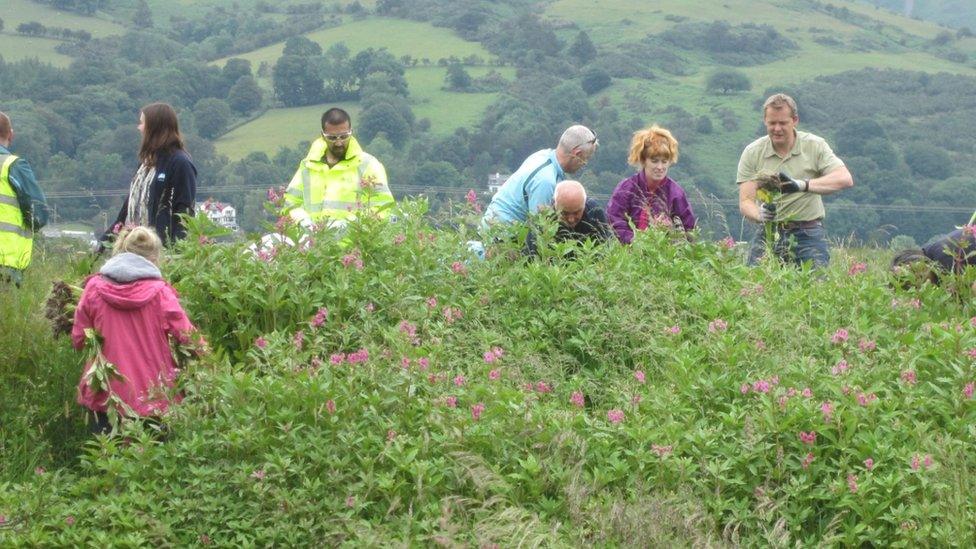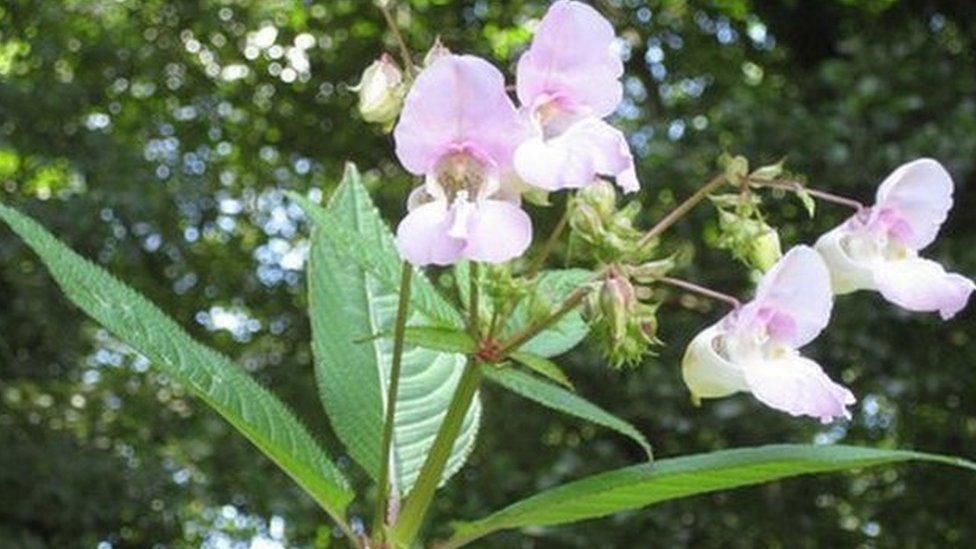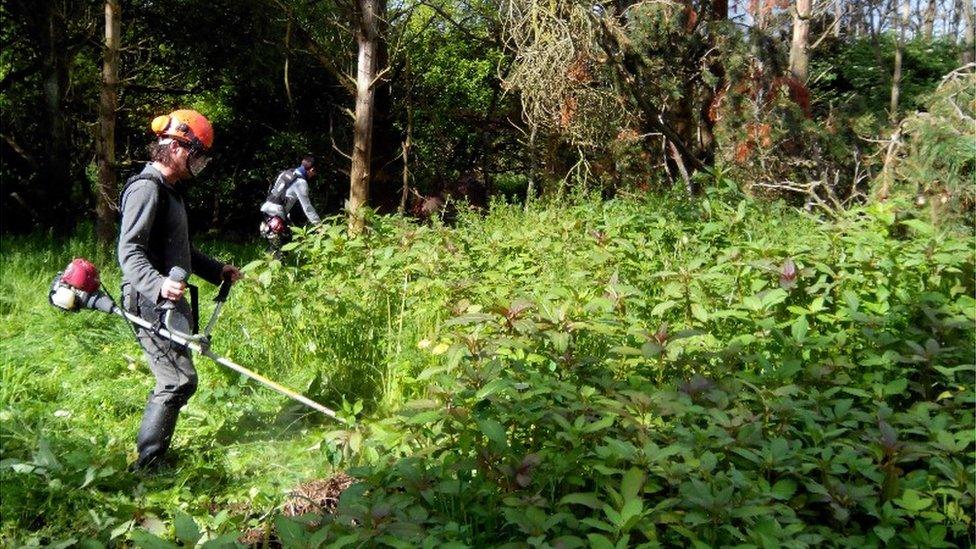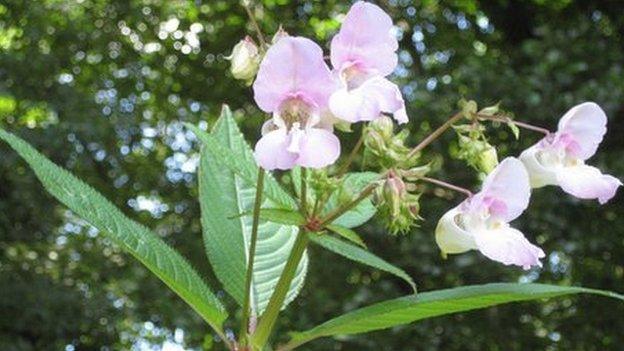Volunteers sought to destroy Himalayan balsam on Cumbrian river banks
- Published

Himalayan balsam grows vigorously and reduces biodiversity on riverbanks
Volunteers are being sought to help to slow the spread of a destructive species of flower near rivers in Cumbria.
Himalayan balsam is beginning to take hold on the banks of the River Cocker at Cockermouth and the River Glenderamackin in Keswick.
West Cumbria Rivers Trust needs volunteers to help remove the flowers., external
The non-native plant grows vigorously, outcompeting native plants and reducing biodiversity on riverbanks.
Volunteers are needed on 13 June at Mosser, 22 June in Cockermouth and 1 July at Loweswater.
The trust also wants community groups to get involved and learn how to pull balsam, then adopt their own stretch on a local river to help control it over a wider area.
Jodie Mills, director of the river trust, said: "We work as hard as possible to control invasive species, but we're a small team with a huge area to cover.
"Balsam is removed by physically pulling it up. This needs to be done before the seed pods grow, after which disturbing the plant can help the species spread further.
"This summer we'll be running lots of volunteer events and can support people to get up and running in pulling balsam themselves."
Related topics
- Published16 July 2018

- Published17 November 2015

- Published7 July 2015
